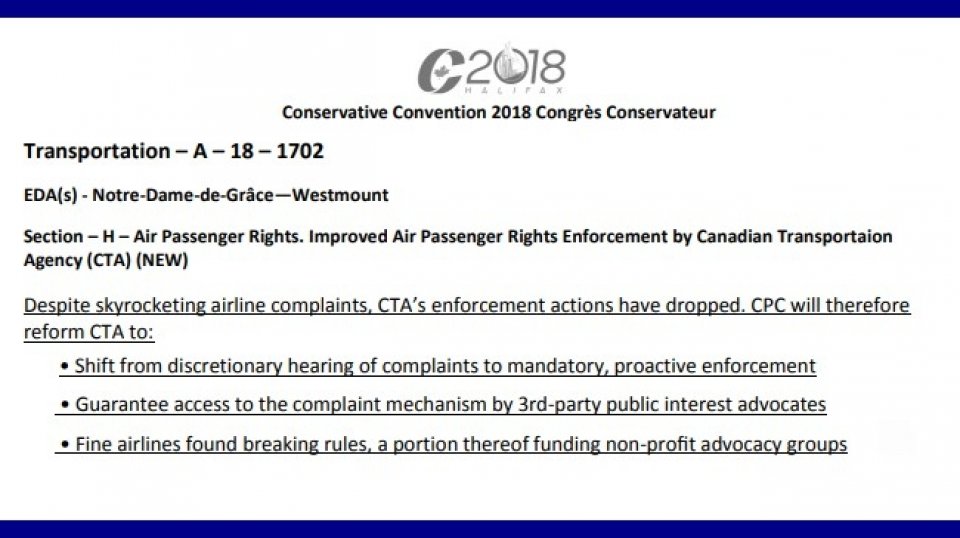Your travel and time are as much “property” as a car is. If your car is vandalized, you can reasonably expect the perpetrators to be brought to justice and face consequences for their unlawful actions.
Travel by air is supposed to work the same way in Canada. The Canadian Transportation Agency (CTA), the government “watchdog” overseeing airlines, can fine airlines up to $25,000 per violation airlines up to $25,000 per violation for breaking the many laws and regulations that already exist in our law books to protect the rights of travellers.
Except that it does not.
When Gerard Cooke complained to the CTA, he expected to get help. Gerard’s flight from St. John’s to London (UK) was cancelled due to multiple issues within the airline’s exclusive control, and he arrived 17.5 hours late. The law was on Gerard’s side. Federal legislation that has been in place for more than 15 years required the airline to compensate Gerard for his damages, up to approximately $8,500.
Instead of help, Gerard received a phone call from a CTA case officer, telling him that his file had been closed. According to Gerard, the “[case officer] misrepresented to me the obligations of [the airline] under its Tariff. She neither considered nor informed me about the liability of [the airline] under Article 19 of the Montreal Convention.”
It was only after Gerard sued in small claims court that the airline agreed to comply with the law and pay. Gerard was assisted by Air Passenger Rights, a nonprofit network of volunteers.
The experience of Gerard with the CTA is not an isolated incident. The CTA’s statistics show that legislation meant to protect Canadian travellers has turned into dead letter. Between 2013 and 2017, the number of complaints received by the CTA has quadrupled, while enforcement actions have seen a near four-fold decrease.

Complaints Against Airlines

Enforcement Actions by the Agency
This state of affairs is unacceptable. As long as the existing air passenger protection laws and regulations remain dead letter, it is pointless to enact additional ones.
To add insult to injury, the Liberal government has recently curtailed access to justice for air travellers by barring public interest complaints to the CTA in many areas. In practical terms, this means that nonprofit groups such as Air Passenger Rights can no longer bring complaints directed at many systemic issues; instead, individual passengers have to shoulder the burden and financial risk of the complaints, which can take many years to litigate, and may include appeals to the Federal Court of Appeal and the Supreme Court of Canada.
This week, the Conservative Party of Canada (CPC) Convention in Halifax will vote on a policy proposal that would solve the most important problem crippling air travel by compelling the CTA to proactively enforce the law, and would reinforce the rule of law by restoring the ability of groups like Air Passenger Rights to file public interest complaints, by repealing the misguided law passed by the Liberal government.
Volunteers of two grassroots ridings at opposite ends of the country - Montreal’s NDG-Westmount and Vancouver Centre - have come together in Halifax, seized with the realization that such change is urgently needed in the area of enforcing what is left of a passenger rights scheme, recently diminished in Canada by Liberal Transport Minister, Marc Garneau.
Will Canada remain a land of anarchy and no consequences for airlines that break the rules? Will Conservatives stand by their core values of upholding the rule of law already on the books? The decision is now in the hands of the delegates at the CPC Convention in Halifax.
Dr. Gábor Lukács is the founder and coordinator of Air Passenger Rights, an independent, nonprofit network of volunteers working to make the travelling public aware of its rights and capable of enforcing them. The organization’s mission is to turn helpless passengers into empowered travelers through education, advocacy, investigation, and litigation.


